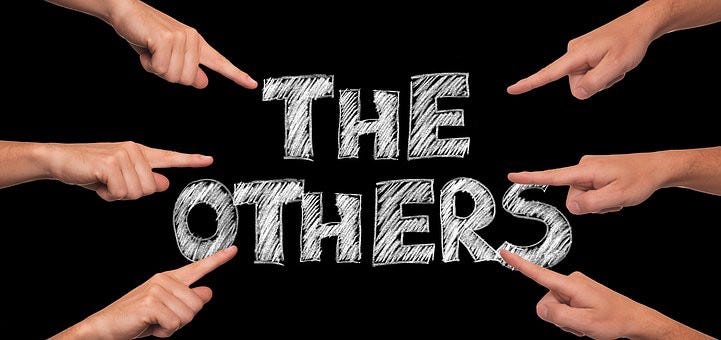Shedding Victim Mentality: A Path to True Happiness
Written on
Chapter 1: Understanding Victim Mentality
Stop questioning, "Why me?" and start embracing, "Yes, me!"

Self-pity can be one of the most damaging forms of escapism; it’s addictive, provides fleeting comfort, and detaches us from reality.
— John Gardner
Experiencing self-pity is both gratifying and painful. The urge to dwell on past wrongs can feel like a familiar, worn-out security blanket that we cling to, even when it no longer serves us.
Thoughts like "I don't deserve this" or "After everything I’ve done, this is how I'm treated?" run through our minds. We often fixate on all the negativity surrounding us, interpreting others' actions as unkind or thoughtless. "Why can’t I ever catch a break?" becomes a common refrain.
We tend to obsess over our grievances, allowing them to fester and deepen. This negative mindset can lead us to believe that the world is conspiring against us, creating a cycle of victimization.
Are you or someone you know trapped in a cycle of misfortune? Do you blame everyone and everything, from individuals to institutions, for your unhappiness?

This victim mentality allows us to evade accountability for our role in our circumstances. We might think, "They should apologize," or "If they truly cared, they would understand my needs without me having to express them." The focus remains on others, with no acknowledgment of our own responsibilities.
The language of self-pity is devoid of personal accountability. By adopting this mindset, we relinquish control over our happiness, making it contingent on external factors and individuals, which are ultimately beyond our influence.
In my past marriage, I excelled at playing the victim. I would often give my partner the silent treatment, expecting him to read my mind. I took on all household responsibilities without asking for assistance, then resented him for not helping. Instead of addressing my feelings directly, I’d vent to friends about my dissatisfaction.
Since leaving that relationship, I have undergone significant healing. I've recognized that outsourcing my happiness only led to more discontent. I could try endlessly to manipulate others into acting as I wished, yet I would still feel unworthy and unloved.
Happiness is an internal journey.

Are you ready to reclaim your power? Consider these steps:
- Let go of the notion that others are responsible for your joy.
- Recognize and articulate your own needs.
- Advocate for yourself.
- Fulfill your needs independently or ask for assistance when necessary.
- Accept "No" as a complete answer without probing further.
- Dispel the belief that you are powerless.
- Cultivate self-agency; stand for your values rather than against others.
- Identify and release beliefs that cause you distress.
- Foster beliefs that promote joy.
- Own your life; it is yours to shape.
Key Message: Our joy or suffering is not dictated by life’s circumstances; it is our responsibility. Release your burdens, embrace your freedom, and acknowledge your power to choose.
Chapter 2: Taking Action for Empowerment
Video: Stop Victimizing Yourself
This video explores the importance of taking charge of your life and breaking free from the cycle of victimhood.
Video: Break Free From Victim Mindset Hypnotherapy
This hypnotherapy session aims to help you release limiting beliefs and empower you to create a positive mindset.
If you're enjoying the content on Medium but have hit your reading limit, consider subscribing for just $5 a month to continue exploring topics like self-empowerment!